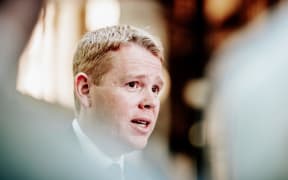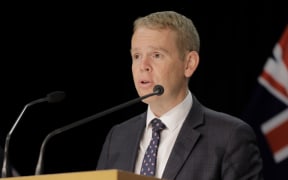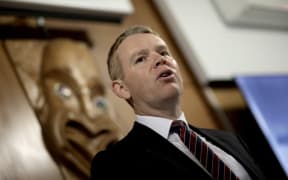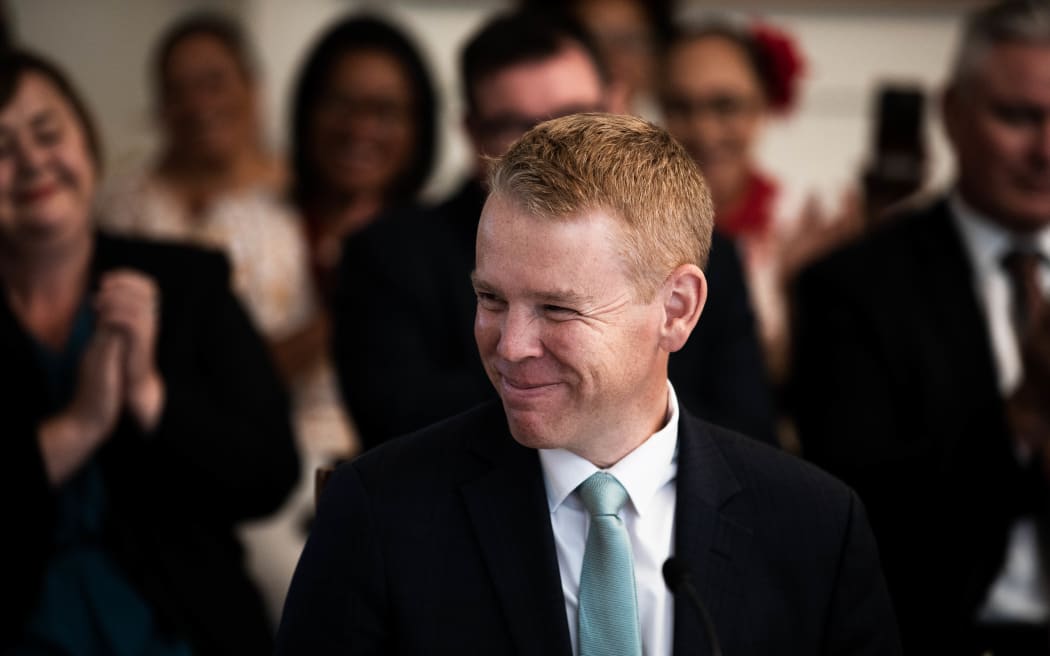
Chris Hipkins being sworn in as Prime Minister in January 2023. Photo: RNZ / Samuel Rillstone
Analysis - When he first stepped into his predecessor's shoes, Chris Hipkins was seen as a safe pair of hands in the Labour government, known for stepping in to tidy up messes left by other ministers.
He would have had no idea those caretaking skills would be so sorely required in the months to come.
Hipkins replaced Jacinda Ardern in January, but he joined other prime ministers like Mike Moore, Jenny Shipley and Bill English in failing to win an election in their own right after taking over from another leader mid-term.
An education
A familiar face through years of opposition and government, much of his history is well known - but the challenge of guiding Labour through an election in the wake of Jacinda Ardern's leadership has been a true test of his mettle.
A high-profile minister who had overseen major portfolios like Education, Health, Covid-19 Response and Police, he has a mind for detail and - in contrast with Ardern - a track record for openly admitting when he gets those details wrong.
He was already a career politician, having entered Parliament in 2008 at age 30 with a resumé that included the Industry Training Federation, Todd Energy, and stints as an advisor to Trevor Mallard and Helen Clark. His mother Rosemary is a celebrated educator and his time with Mallard would have helped prepare him for the Education portfolio he took over when Labour entered government in 2017, a passion area of his.
But perhaps one of his greatest political weaknesses has been his legacy in setting up Te Pūkenga, the merger of 16 polytechs, which is in dire financial straits. It was a move which went much further than what had been recommended, aiming to reimagine vocational training and cut down on debt and dysfunction in the sector.
Hipkins told the NZ Herald in July one of the most important things he learned from Mallard was "not making a decision is the worse decision you can make". It's unclear what continuing with status quo would have meant, but those problems of debt and dysfunction have continued, with large deficits despite cuts, and serious leadership problems.
Another focus area for Hipkins was on systems and rules, epitomised by his role as Leader of the House which had him dealing closely with the workings of Parliament, and as Minister of the public service, ministerial services, and state services.
He was parachuted in to take over Health ahead of the 2020 election after David Clark's resignation over a series of missteps - starting with the infamous family beach trip and bike ride, and later headed up the fraught Covid-19 Response. He took over Police when Poto Williams came under pressure over ram raids.
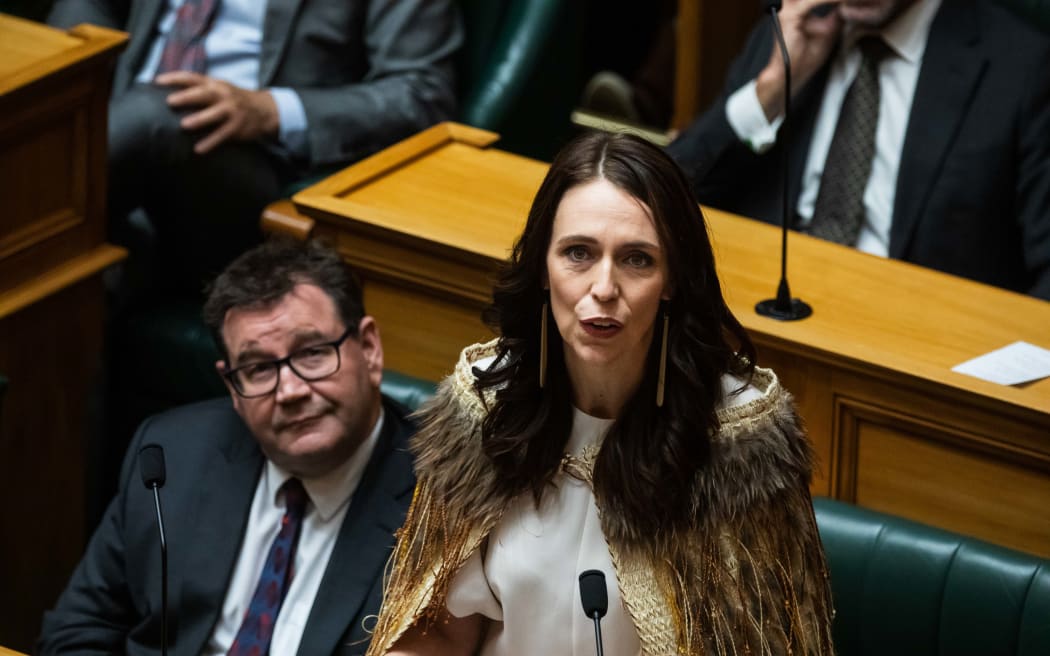
Jacinda Ardern giving her valedictory speech in April after her shock resignation in January. Photo: RNZ / Samuel Rillstone
The boy from the Hutt becomes PM
Then Ardern revealed her shock resignation in January; Grant Robertson and Kelvin Davis quickly withdrew from the contest; and Hipkins stood out as a frontrunner.
Colleagues described him as "decisive" and "deeply grounded in Labour values", commentators said it marked a shift from "woke to bloke", and called him Ardern's "attack dog".
The Herald's Claire Trevett revealed in February that although Hipkins had not been shoulder tapped for the leadership, he was among the first people Ardern told of her decision. It was a bloodless transition - remarked on for its efficiency, and the image this projected of a united party.
"Leadership contests don't have to be like The Hunger Games, as the National Party seem to have perfected the art of," Hipkins told reporters after being confirmed for the role.
He has also made much of his everyman "boy from the Hutt" style - he rolled out the phrase in his first speech and has made a point of returning to his Remutaka electorate for several campaign and policy events - Labour's election night shindig, unusually, also held in Lower Hutt just a bit further south.
This extended to his diet: he's long been known for having a penchant for Coke Zero to the point he had to cut back on it, and his love of meat pastries prompted a sausage roll from the new King Charles, and thenceforth from dozens if not hundreds of adoring fans.
The black hoodie and wraparound sunnies he had worn when speaking to media at Labour's annual caucus retreat where Ardern announced her departure were seized upon as social media gold, and were later auctioned off.
Family is also clearly important to him - something National's Christopher Luxon said he respected - and Hipkins made a point of calling for privacy for his children.
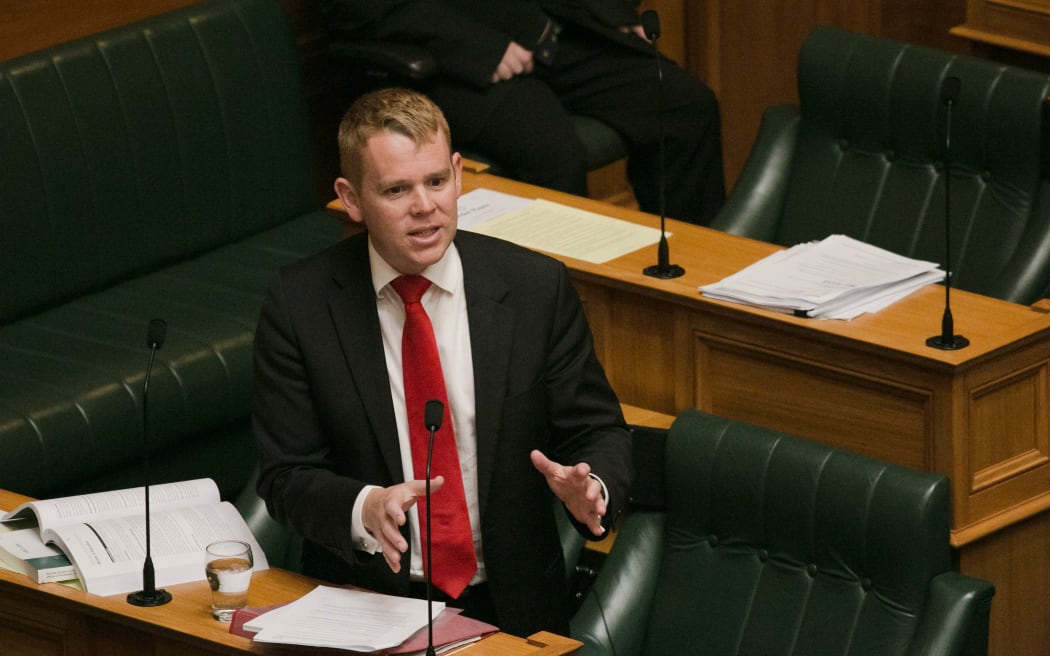
Labour MP Chris Hipkins in 2017. Photo: VNP / Phil Smith
A series of unfortunate events
One of the things that hurt Hipkins' re-election chances most was a quagmire not of his making - the repeated scandals of his Cabinet members and MPs, mostly committed before he took the leadership.
First, perhaps the worst, he sacked Stuart Nash for sharing confidential Cabinet information with donors. Nash was already on his "last chance" after criticising a judge's decision and revealing he'd phoned the police commissioner about it. Then there was the defection of Meka Whaitiri - announced just after Hipkins departed for King Charles III's coronation, the timing a slap in the face - increasing the perception of a divided caucus.
Michael Wood - previously considered alongside Hipkins for the role of PM - resigned from Cabinet but stayed on as an MP after a protracted inability to declare or properly manage his shares and those of his family, for reasons that still remain unclear.
In June, Hipkins' replacement as Education Minister Jan Tinetti faced a Privileges Committee hearing and was forced to apologise for negligence after failing to correct the record in Parliament, inflaming impressions of a government trying to twist the truth for its own purposes.
Finally, the troubling car crash of a distressed Kiri Allan - who, having faced accusations of bullying was now in the unacceptable position (for a justice minister particularly) of facing court charges. She made public her difficult struggle with her mental health, offered apologies, and resigned.
All this in the space of four months, hardly a series of events that instils confidence.
A plan of attack: straight down the middle
But conflict and competition are inescapable in an election, and he came into the job with a mission: cutting down on the cost of living, which National had been hammering the government over.
This is where the attack dog was needed: Hipkins' focus turned from Ardern's 'kindness' towards a more combative approach.
He told reporters in the final weeks before Parliament rose Labour would be "fighting back".
Some of his first decisions were a series of cut-backs and re-arrangements of Labour's programmes. It gave the impression of a decisive shift under new leadership, but had in fact been started and well signalled under Ardern.
The Herald's Audrey Young reported friends and family describing him as a "self-contained man alone" - decisive, but taking little counsel other than his own.
This was most clear when Hipkins made the call - to the clear chagrin of some of his caucus colleagues - to rule out any wealth or capital gains tax, much as Ardern had.
With the economic conditions tight, there wasn't much Labour could realistically promise without raising taxes. National had long promised to make tax cuts, and with government reports supporting the benefits of a wealth or capital gains tax, expectations had been rising for one - perhaps with some tax relief to balance it out.
Hipkins' decision was a continuation of Ardern's centrism - unpopular with the left perhaps, but turning the contest between National and Labour into one of personality, not policy.
Race and division
As polling day neared his personal popularity steadily declined. In the final weeks of the campaign, he turned to a defence of Māori as a main new point of difference, targeting National and ACT for talking up the dangers of co-governance and the Māori Health Authority.
It's not a new area for Hipkins: having clashed with Luxon over the matter at Rātana, he was warned by iwi leaders ahead of Waitangi Day not to bow to pressure over co-governance, and seems to have taken that to heart.
On the day itself he emphasised the positive, and spoke about the need for equity, rather than equal opportunity.
As the election campaign wore on, he sharpened the approach, urging parties to be bold on pro-Māori initiatives, before targeting an NZ First candidate over comments during the Newshub leaders debate.
The following day, he committed to calling out racism, saying this was a "novel" approach shifting away from National and Labour leaders of the past - and singling out National, ACT and NZ First over their words during the campaign.
But his timing wasn't great. Hipkins certainly seemed heavily focused on governing right up until Parliament shut down, while National and ACT were making hay of contentious issues.
The campaign itself seemed to only pick up steam as Labour began to dip lower in the polls, and Winston Peters became more of an x-factor.
The lone wolf
The picture that emerges is of a man committed to people - voters, his family, his Māori friends and colleagues - a man who wanted to do what he saw as the right thing.
But he is also deeply political, and not afraid to get into the trenches - as he showed in the election debates.
He is an introvert, who - unlike Luxon - found socialising with random voters difficult until later in the campaign, and tends to make decisions in isolation. Decisive, sure - even if the outcome of those decisions sometimes goes badly.
The lone wolf, on the attack, but fighting for survival of the pack - even when they're misbehaving.
Maybe his approach could have benefited at times from some more advice. Maybe it all just came too late, and now the pack has moved on.
The man alone, indeed.

